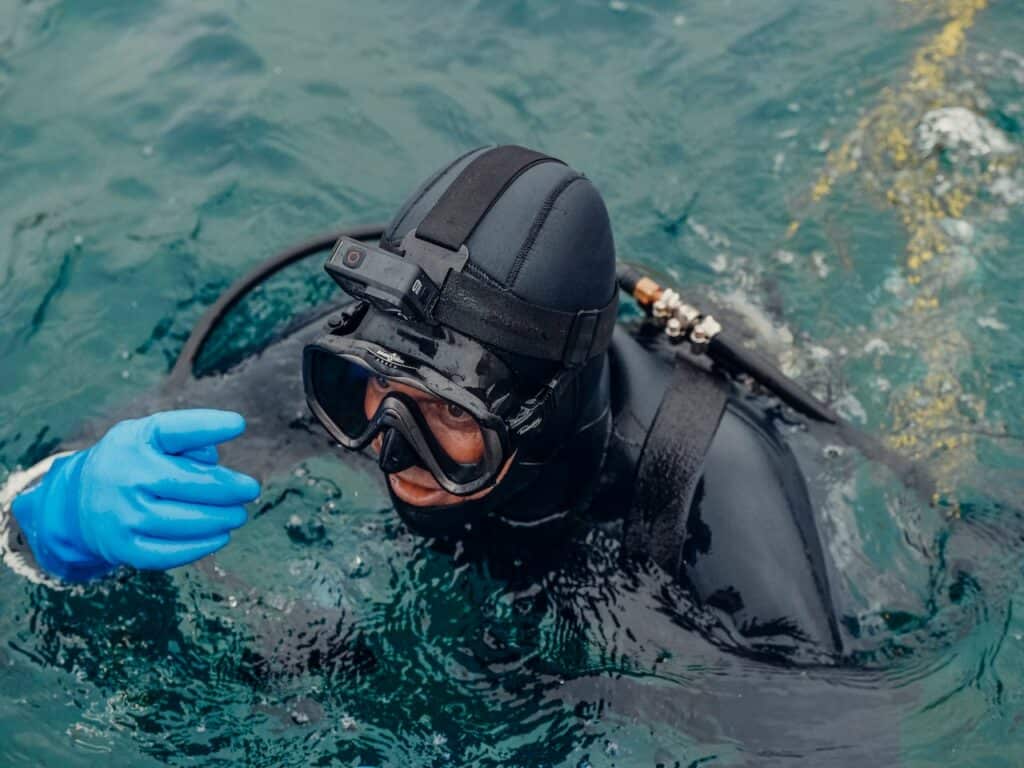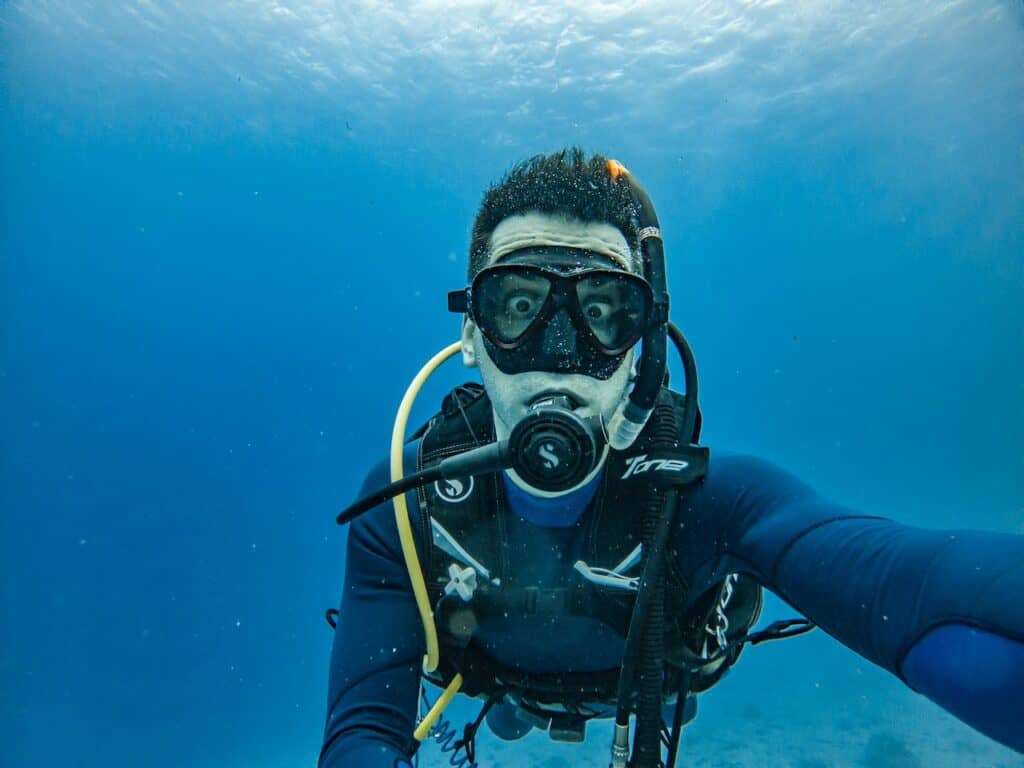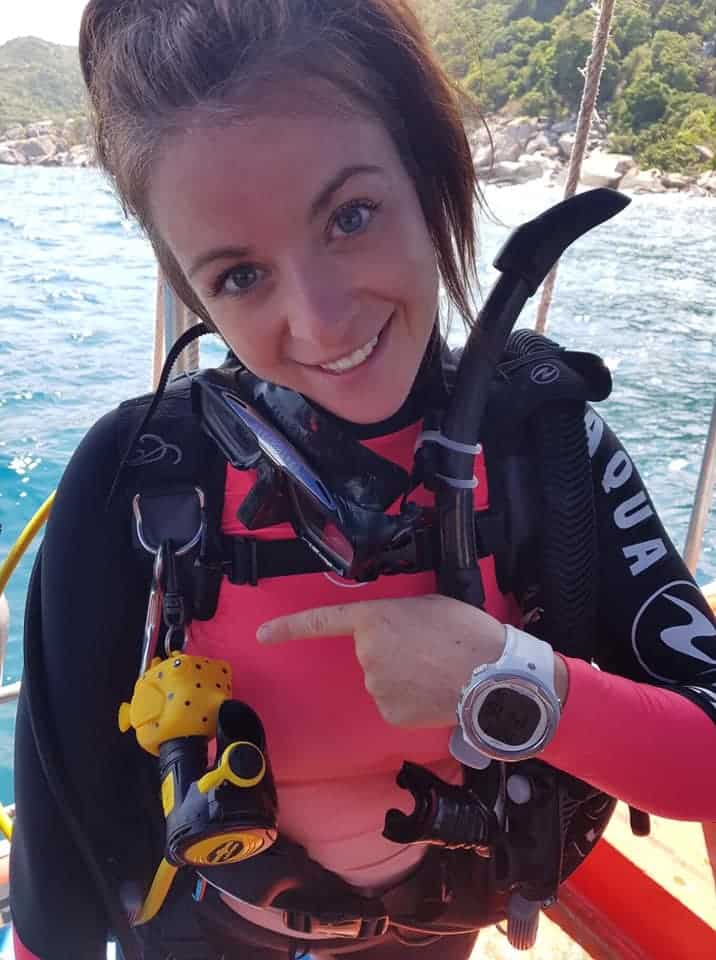Planning an upcoming scuba diving trip is on of the most exiting parts of being a scuba diver. However it is important we keep ourselves fit and check for new medical conditions that may creep up on us.
If you are somebody that experiences high blood pressure, then you will want to continue reading.
You can breathe a sigh of relief because yes, you can scuba dive with high blood pressure levels. However according to Divers Alert Network, you need to make sure you seek a doctors advice in order to receive a medical evaluation and talk about how to manage it as you scuba dive.
As you will have already learned in scuba diving, everybody’s physiology reacts differently to being underwater. To make the most informed decision, here is what you will need to know.
This article is not medical advice and is merely to help you dive safely, please contact your instructor and dive doctor for advice.

Table of Contents
Can I scuba diving with high blood pressure: What are the rules
Scuba diving is a very safe sport as long as people follow the rules. Unfortunately, high blood pressure can be silent and can happen to us as we get older or undergo lifestyle changes. Putting us at an increased risk of a diving accident.
If you are looking to start your journey into recreational scuba diving, then you may want to check yourself for hypertension before filling out the World Recreational Scuba Training Council WRSTC Medical Form that is required before your course begins.
The WRSTC are essentially the governing body for scuba diving training standards used by many of the largest training agencies in the world such as PADI and SSI. Before beginning a course with any medical conditions. You must be assessed to make sure your doctor approves and so that your condition can be controlled while scuba diving.
I am already certified. Do i need to get a medical certificate?
As a certified diver, you are responsible for evaluating your readiness to dive based on your current medical condition. It is increasingly common as scuba divers age that they begin to experience symptoms of hypertension.
In fact many of the diving population may be diving with high blood pressure and be completely unaware as the symptoms do not usually present until you are getting towards a dangerous level. Some of the common signs and symptoms are as follows:
Headaches occurring at the back of the head
Regularly nose bleeds
Shortness of breath
Kidney disease
It is worth getting a regular thorough medical evaluation especially if you are a scuba diver approaching or older than the age of 45. This will give you the best chance of finding out and receiving assistance to control and monitor your blood pressure so that you can continue to scuba dive.
Ultimately you have to take into account your own physical health and get regularly checked as you age being sure to inform your doctor that you are a recreational scuba diver.
How does Scuba diving Directly affect Blood Pressure?
When we take part in scuba diving activities our bodies are subject to increased pressure from the surrounding water. As we descend deeper this pressure increases and the body systems are forced to work harder in order to do the same job as at the surface.
You may not have the exercise capacity to scuba dive. Additional stress levels on the human body to perform at depth can increase our chances of the following:
Heart attack
Stroke
Loss of vision
Nose Bleeds
Severe Headaches
Immersion pulmonary oedema in colder waters
Decompression illness
Be sure to take this into account as you get older and continue to scuba dive. Take into account blood pressure as a major risk factor and dive safely by getting checked by a doctor before your next trip.
How will i manage my blood pressure levels?
Recreational scuba divers with a higher than average blood pressure as long as it is managed well and is not significantly effected by exercise.
According to Divers Alert Network South Africa, a diastolic blood pressure level of more than 140 millimetres of mercury and a systolic blood pressure level of 90 millimetres would be considered high.
Depending on the specifics of your blood pressure reading some of the treatments are as follows:
Diuretic to increase fluid loss
Angiotensin converting enzyme blockers are the most common inhibitors used
Angiotensin receptor blockers
Calcium channel blockers
Beta blockers
Alpha blockers
Negative effects of taking medications although effective at lowering blood pressure, also decrease the levels of maximum exercise tolerance in certain individuals and can even cause feinting. This is why it is important to be clear with your doctor that you are participating in scuba diving.

Lifestyle changes
As we age it is harder for our bodies to keep up with the demands we place upon it if we do not adjust our lifestyle. As a recreational scuba diver it is possible to rescue blood pressure numbers simply by making certain lifestyle changes.
Here are some tips to help improve your overall health to help you be a sports diver for longer:
Eat healthier foods
Drink less alcohol
Ask your doctor for an exercise plan
Quit smoking
Hypertension is one of the most common medical conditions experienced by the general population as we get older. However these are some of the steps that we can take to reduce our blood pressure and cholesterol levels so that we can continue to scuba dive.
Do’s and Don’ts for diving with high blood pressure
Do's
- Get checked regularly for high and low blood pressure to make sure you are in a normal range
- Have a comprehensive insurance policy.
- Assess environmental conditions before diving. Colder water can put you more at risk
- Have medical clearance to scuba dive from a diving doctor
- Inform the people you dive with of your condition and how to help you if you need it
Dont's
- Leave it too late to get checked, high blood pressure Is often a silent illness
- Dive knowing you are feeling symptoms
- Not be insured to scuba dive
- Keep your condition from your dive centre, guide or buddies
In conclusion, you can scuba dive with high blood pressure. However there are many factors to consider before doing so. Every individual is different and will need to be evaluated by a doctor to determine the best course of action for them.

